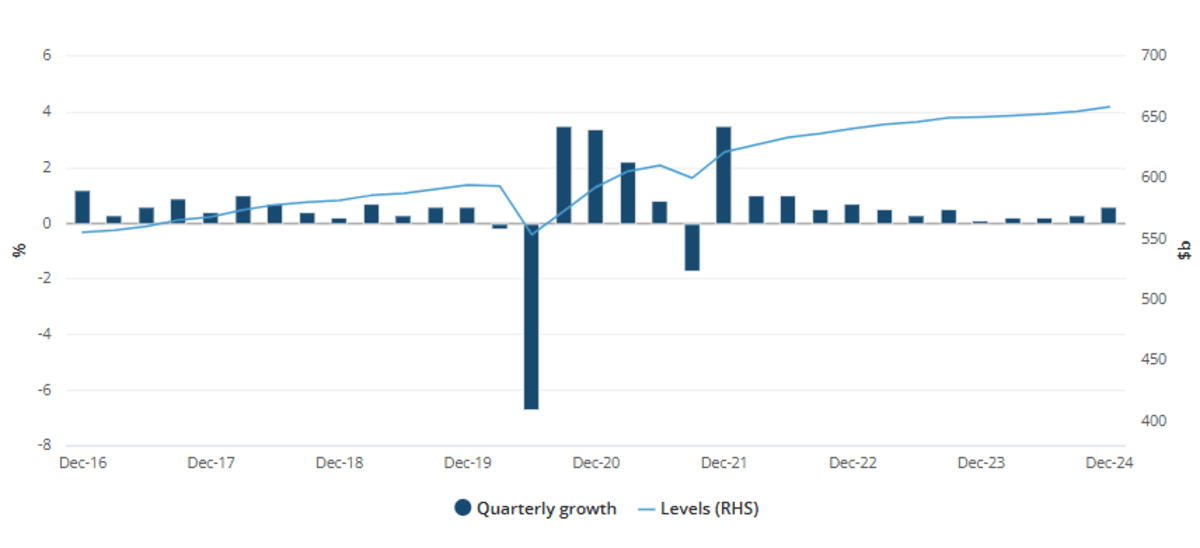Australia’s economic growth accelerated in the last three months of 2024 as shopping and hospitality spending helped pull the country out of a per-capita recession, according to data from the Australian Bureau of Statistics (ABS).
Gross domestic product (GDP) increased by 0.6% in the December quarter and 1.3% in the year to December 2024, the ABS said.
This compared with growth of 0.3% in the September quarter and 0.8% in the year to September 2024, according to previous ABS data.
GDP per capita grew 0.1% following seven consecutive quarters of falls, the ABS said, which had qualified as a recession on a per capita basis.
A recession is defined as two consecutive quarters of negative growth.
The quarterly growth rate exceeded the market consensus of 0.5% and marked the 13th successive period of quarterly growth and the fastest pace of growth since the fourth quarter of 2022, Trading Economic said.

ABS Head of National Accounts Katherine Keenan said economic growth was modest and broad in the latest quarter with contributions from public and private spending and support from a rise in exports of goods and services.
Household spending rose 0.4%, with spending on essentials like rent and health among the highest contributors, while electricity rebates kept household spending on electricity, gas and other fuels down.
“Household discretionary spending rose as people made the most of retail sales events and increased spending on hospitality as they enjoyed music and sporting events,” Keenan said in a media release.
Government spending growth moderated to 0.7%, driven by spending on essential services including health, education and policing by states and territories, while increased expenses associated with defence exercises, pharmaceutical benefits scheme, and aged care lifted Commonwealth expenditure.
Private investment rose 0.3%, spurred by expenditure on new engineering, construction of electricity generation and distribution projects, and mining.
Public investment rose 1.8% as governments spent money on public transport, roads, water, renewable electricity, telecommunications and power generation.



